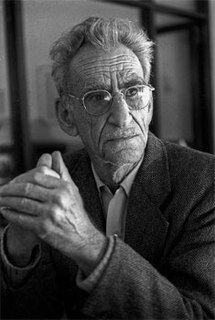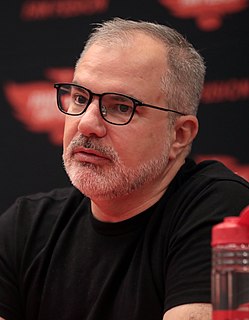A Quote by John Zorn
Each record in the 'Book of Angels' series is meant to be unique in terms of the compositions.
Related Quotes
I first heard the term "meta-novel" at a writer's conference in Tulsa, Oklahoma. The idea is that even though each book in a series stands alone, when read collectively they form one big ongoing novel about the main character. Each book represents its own arc: in book one of the series we meet the character and establish a meta-goal that will carry him through further books, in book two that meta-goal is tested, in book three - you get the picture.
There are many important books on oral history. My book was the launch title in the Understanding Qualitative Research series with Oxford University Press. I think what makes my book and all of the series books unique is the emphasis on writing instruction for researchers who want to use the method being described.
On Earth, we really only deal with two types of angels: the angels, or guardian angels, who are closest to us, and the archangels, who are the managers of the guardian angels. Archangel Michael is a well-known example of an archangel. Guardian angels are assigned to each and every one of us at or before conception. As a soul getting ready to incarnate, you actually talk with your angels and set up a lot of your life.
There are two angels that attend unseen
Each one of us, and in great books record
Our good and evil deeds. He who writes down
The good ones, after every action closes
His volume, and ascends with it to God.
The other keeps his dreadful day-book open
Till sunset, that we may repent; which doing,
The record of the action fades away,
And leaves a line of white across the page.
Now if my act be good, as I believe it,
It cannot be recalled. It is already
Sealed up in heaven, as a good deed accomplished.
The rest is yours.
I think each book sort of finds its own theme as it goes on. 'Warded Man' was fear. 'Desert Spear' was exploration of the other. 'Daylight War' was relationships. Some of this is intentional, and some of it evolves naturally. The series as a whole is obviously something I have given a lot of thought to, but each book is its own animal as well.








































